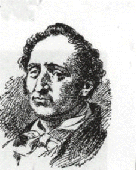

FREDERICK KUHLAU
11th September 1786 --- 12th or 18th March 1832
Last Updated on 2023
By Steven Ritchie
And now for the Music

New (3937)"Allegro in A minor Opus.88". Sequenced by Steven Ritchie.
New (3936)"Allegro in C Major Opus.59". Sequenced by Steven Ritchie.
(751)"Allegro (Sonatine Opus.60, No.3)". Sequenced by Steven Ritchie.
Thanks to Yuko Ohigashi for the music below
(1070)"Sonatina in G major, Opus.20, No.2". Sequenced by Yuko Ohigashi. (3334)"Opus.55". Sequencer unknown. (3333)"Rondeau, Opus.70, No.1". Sequencer unknown. (1072)"Sonatina, Opus.55, No.1". Sequencer unknown. (1073)"Quartet No.1". Sequencer unknown. (1074)"Quartet No.2". Sequencer unknown. (1075)"Quartet No.3". Sequencer unknown. (1076)"Quartet No.4". Sequencer unknown (1071)"Sonatina in G major, Opus.20, No.1". Sequencer unknown. (428)"Opus No.20". Sequencer unknown.

If you done any Classical pieces of say for example, Delius, mozart, and so on etc,
please email them to the classical music site with details to
"classical (@) ntlworld.com" written this way to stop spammers
just remove spaces and brackets for email address, thank you.

Visitors to this page --

Back to Classical Midi Main Menu click "HERE"